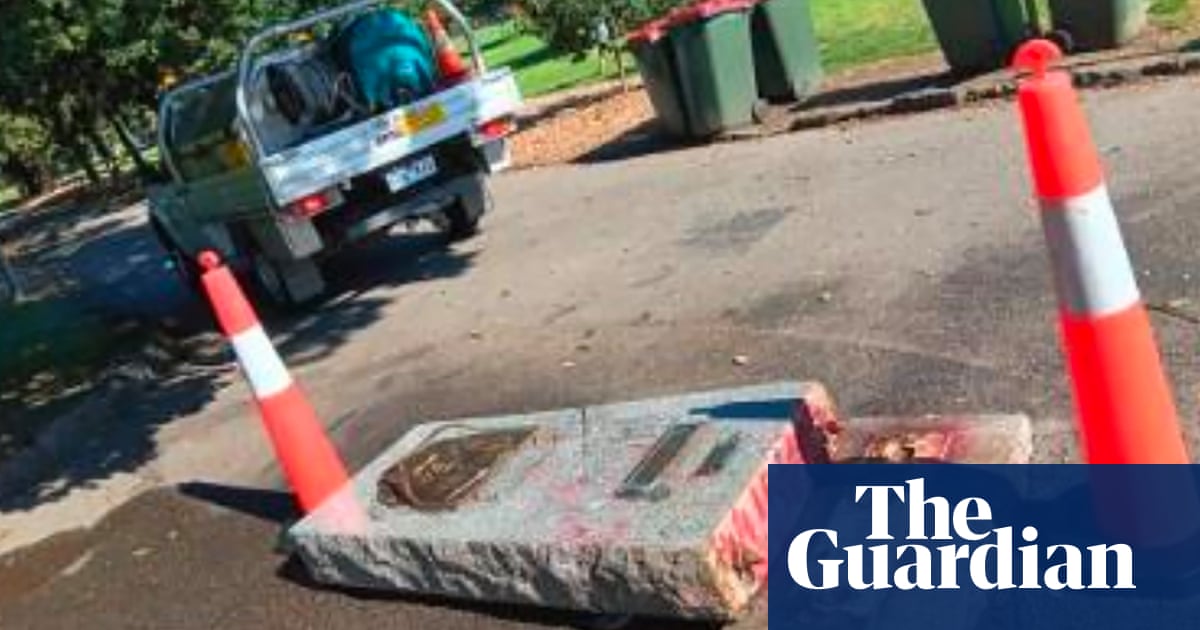The article presents a situation regarding the Captain Cook memorial in Melbourne, which has been subject to vandalism and controversy, leading to the City of Yarra's decision not to restore it. The decision reflects deeper societal issues concerning historical figures and their representation in public spaces. This analysis explores the implications of the decision, the possible motivations behind the article, and the broader societal context.
Motivations Behind the Decision
The unanimous vote by the City of Yarra to scrap the memorial indicates a shift in how communities are addressing contentious historical figures. The decision appears to be based not only on financial considerations but also on the recognition of Captain Cook's controversial legacy, particularly concerning First Peoples. The mention of the significant costs associated with maintaining the memorial, along with its "little or no significance," suggests that the council is prioritizing community sentiment and fiscal responsibility.
Community Sentiment and Public Perception
The article highlights the polarizing nature of Captain Cook as a historical figure. By stating that the memorial is "contentious within the community," it implies a growing awareness and sensitivity to indigenous perspectives. The council's decision may resonate positively with those advocating for social justice and recognition of historical injustices. Conversely, it could alienate segments of the population who view the removal of such monuments as an erasure of history.
Concealed Narratives
While the article focuses on the memorial's removal, it may distract from broader discussions about colonial history and its ongoing impacts. The decision not to restore the memorial could be perceived as a symbol of progress for some, while others might view it as an attempt to sanitize history. The emphasis on financial implications may also deflect attention from the deeper cultural and ethical debates surrounding public memorials.
Manipulative Elements
There are aspects of the article that could be seen as manipulative, particularly in its framing of the vandalism and public funds. Phrases like "waste of ratepayers' money" suggest a clear bias towards a more fiscally conservative viewpoint, potentially influencing public opinion against the memorial's supporters. The language used may evoke a sense of urgency to do away with the memorial, aligning with a narrative that prioritizes economic concerns over historical significance.
Comparison with Other News
This situation is not isolated; it parallels other recent discussions around historical monuments in various countries, particularly in relation to colonialism and racism. The article connects with a larger trend of reevaluating public symbols and understanding their implications in contemporary society. This trend has been seen in other news stories about the removal or defacement of monuments related to colonial figures, indicating a growing movement towards social awareness and historical accountability.
Potential Societal Impact
The decision to remove the memorial could have varying impacts on the community, including reinforcing the dialogue about Australia’s colonial past and its effects on First Peoples. It may lead to increased activism and advocacy for indigenous rights and recognition. Economically, the decision could free up funds for other community projects, but it could also spark debates that influence local politics and community cohesion.
Support from Specific Communities
The news likely garners more support from progressive communities advocating for social justice, indigenous rights, and historical reevaluation. Conversely, it may alienate more conservative groups who view the memorial's removal as an attack on heritage.
Broader Economic Implications
While the immediate financial implications focus on local governance, the narrative around historical monuments could influence public sentiment in broader markets, particularly in sectors related to tourism and cultural heritage. Companies that operate in these spaces might feel the impact of changing perceptions toward historical figures and symbols.
Global Relevance
The article and its subject matter resonate within a global context, where similar discussions about colonialism and historical figures are prevalent. This relevance underscores ongoing debates about power dynamics and representation in today's society.
Use of AI in Article Creation
It is plausible that AI tools were utilized in crafting this article, particularly in structuring the narrative and emphasizing certain aspects over others. Specific language choices and the overall tone could indicate an AI's influence in shaping public perception, possibly aiming to steer the conversation towards fiscal responsibility while downplaying historical significance.
In summary, the trustworthiness of the article can be assessed as moderate, given its focus on financial implications and the framing of community sentiment. While it addresses relevant issues, the potential for bias in language and presentation raises questions about the completeness of the narrative. The motivations behind this news piece seem to align with a broader trend of addressing historical injustices while also reflecting contemporary economic concerns.
